AITA For wanting to keep my bees even though my new neighbor’s son is highly allergic to them?
Urban beekeeping has been on the rise, bringing the benefits of pollination and fresh honey to suburban backyards. But what happens when a beekeeper’s peaceful hobby collides with a life-threatening allergy?
One Redditor, who has legally maintained four beehives in his backyard for six years, now finds himself at odds with his new neighbors. Their son has a severe bee allergy, and they’ve asked him to remove his hives—something he’s unwilling to do so he refused. Is he a jerk for refusing to give up his bees, or is this just an unfortunate case of bad luck for the new neighbors?
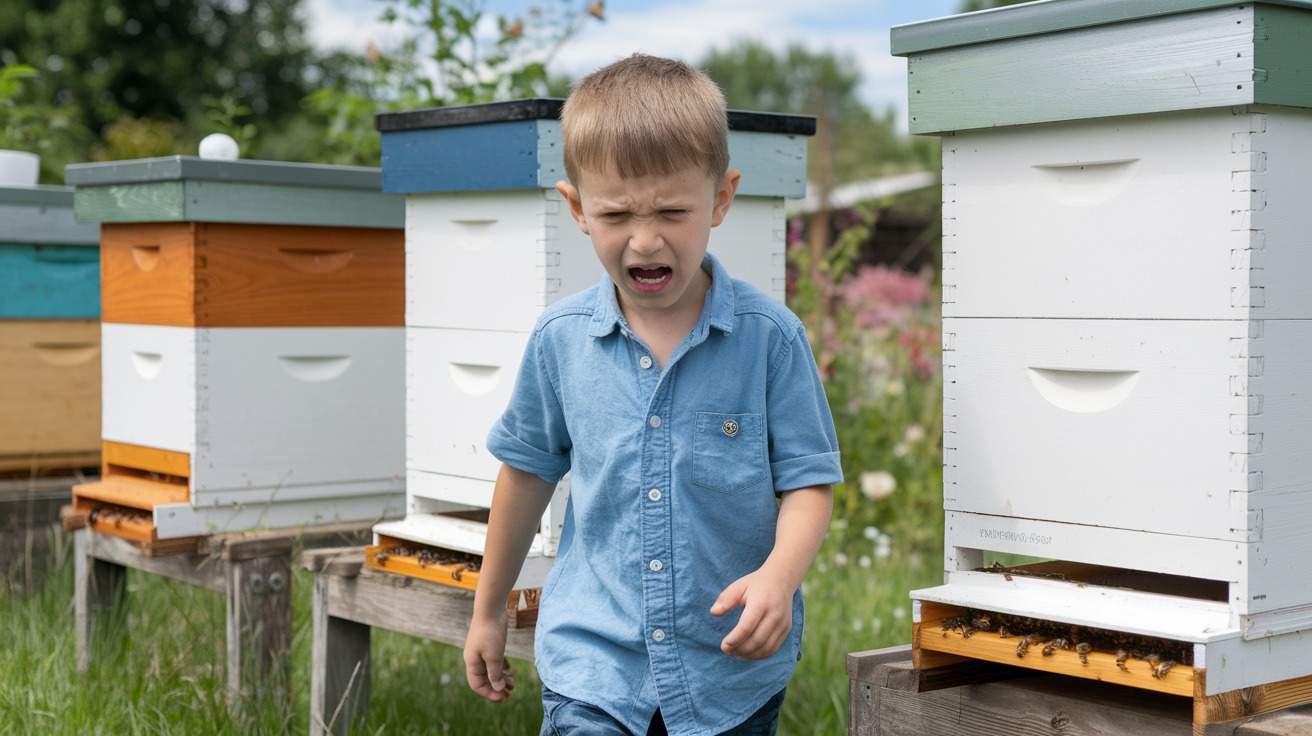
‘AITA For wanting to keep my bees even though my new neighbor’s son is highly allergic to them?’
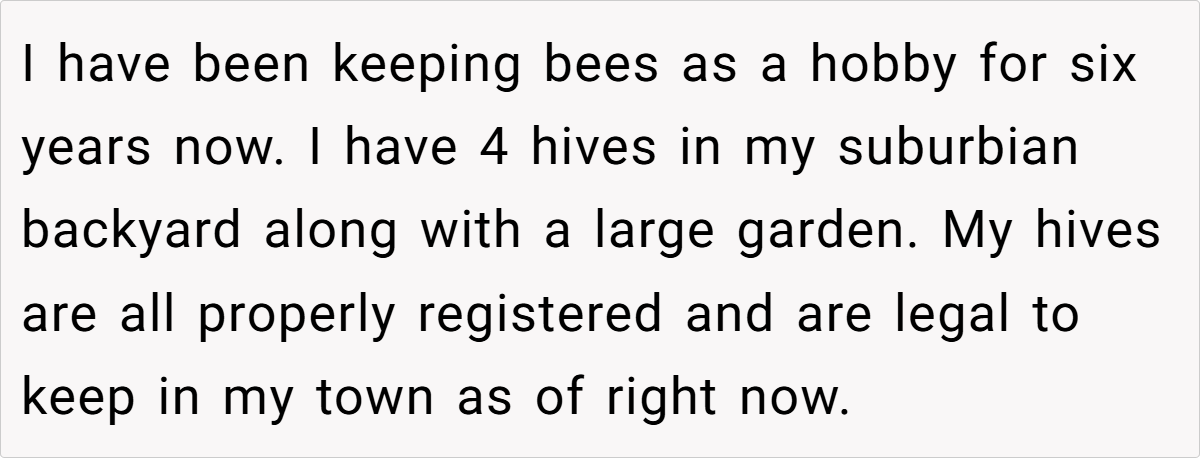
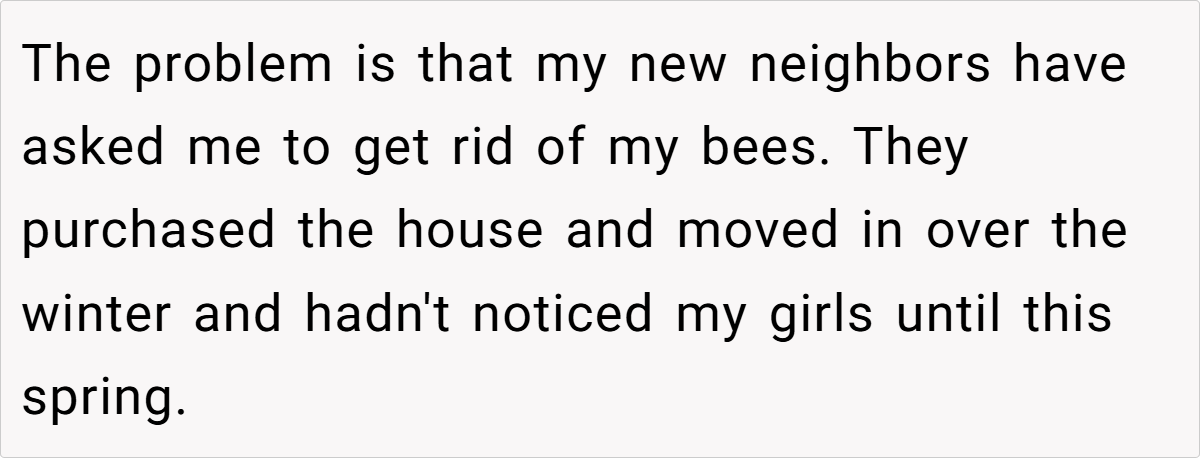
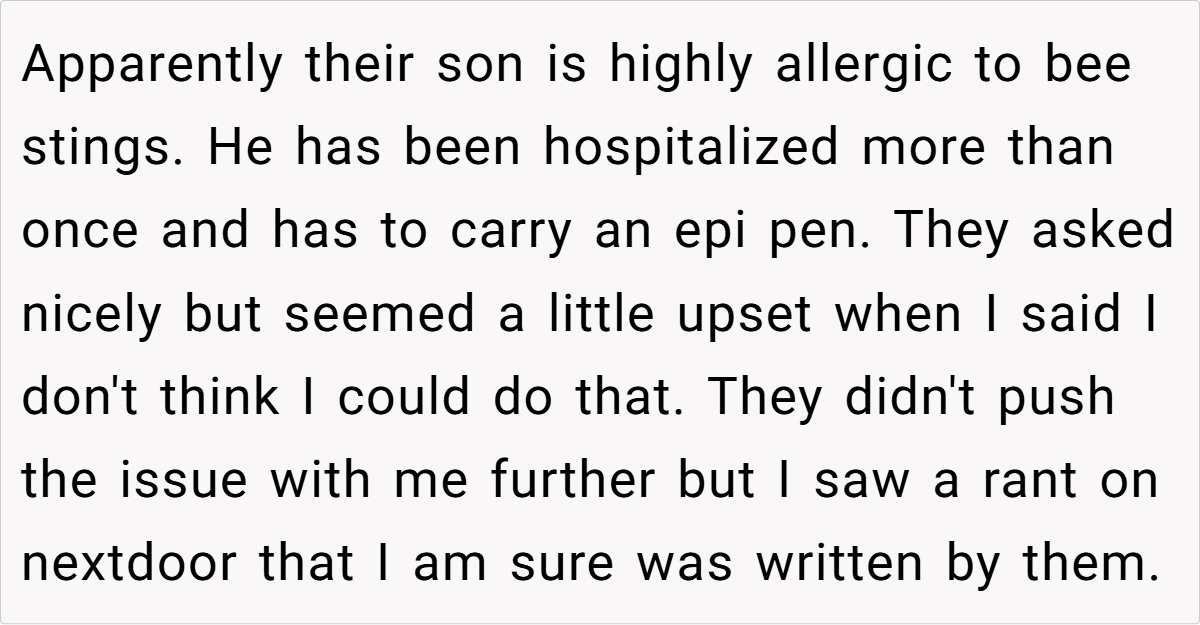
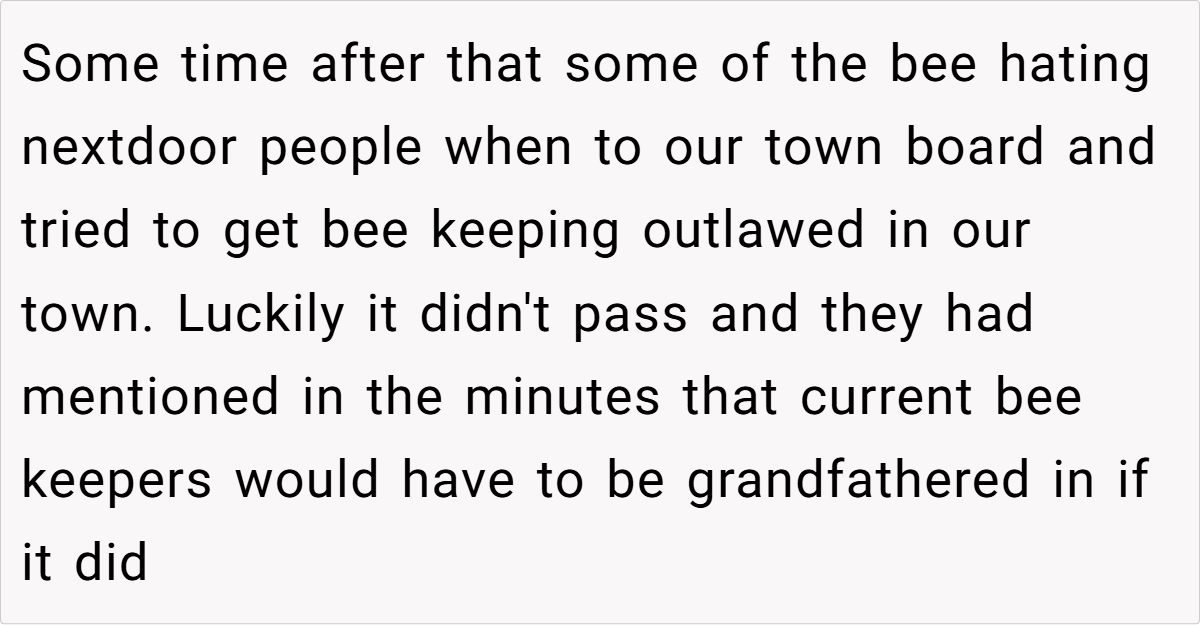
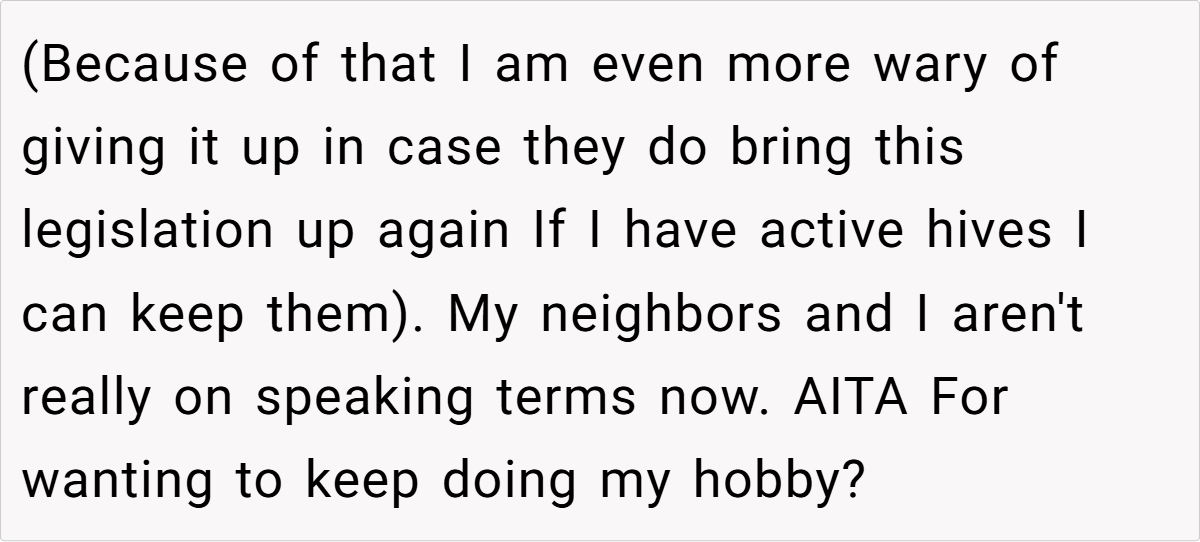
Expert Analysis:
The Legal and Ethical Landscape of Urban Beekeeping
According to Dr. Thomas Seeley, a Cornell University professor specializing in honeybee behavior, urban beekeeping is a legally protected activity in many areas, as bees provide significant ecological benefits. “However, beekeepers also have a responsibility to manage their hives in a way that minimizes risks to their neighbors, particularly in densely populated areas,” he notes.
In OP’s case, his hives were already established before the neighbors moved in. Legally, he’s within his rights, but ethically, the situation is more complicated. While honeybees are generally non-aggressive, the presence of a managed hive does increase the density of bees in the immediate area.
Public Health Perspective: The Severity of Bee Allergies
Dr. Anne Ellis, an allergist and immunologist, explains: “For individuals with severe bee allergies, even a single sting can trigger anaphylaxis, a life-threatening reaction requiring immediate medical intervention.”
The new neighbors’ concern is valid—their child faces a genuine risk. However, bees naturally exist in every environment, and banning hives wouldn’t eliminate the presence of wild bees. The real question becomes: Does OP’s hobby significantly increase the likelihood of a sting happening?
Possible Solutions to Reduce Conflict
- Relocating the hives to another property: Some urban beekeepers place their hives on nearby farms or community gardens where they can still maintain them without causing neighborhood disputes.
- Creating a bee-friendly barrier: A tall hedge or fencing can help direct bee flight paths upward and away from neighboring properties.
- Educating the neighbors: If the child has a history of severe reactions, ensuring he understands how to avoid bees and always has an EpiPen available is crucial.
If OP chooses to keep his hives, he should prepare for potential legal battles in case the family decides to escalate their efforts to restrict beekeeping.
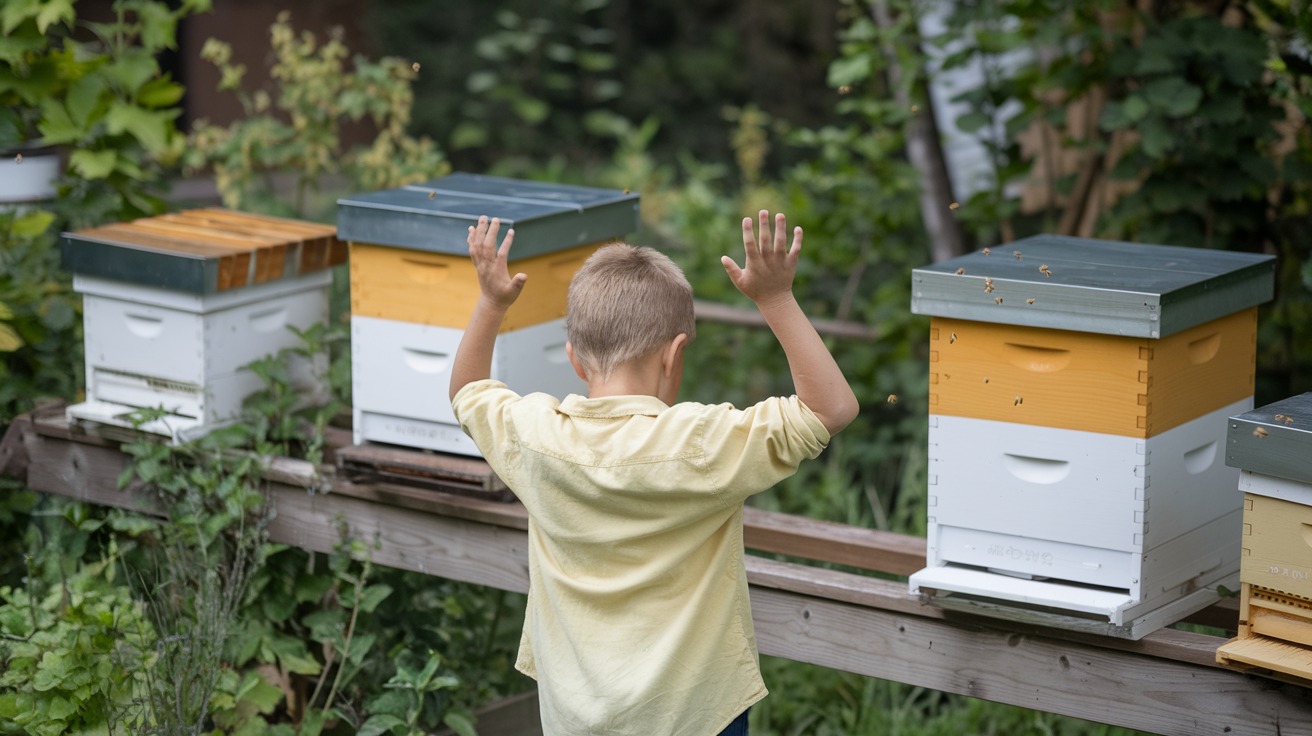
Here’s what Redditors had to say about OP’s dilemma:
Reddit was deeply divided. Some defended OP’s right to keep his legally registered hives, arguing that beekeepers shouldn’t have to accommodate new neighbors’ specific medical needs.
Others expressed empathy for the parents, pointing out that OP’s hobby introduces a potential life-threatening risk to a child next door. Several users suggested compromises, such as relocating the hives or working with the family to ensure a safe coexistence.

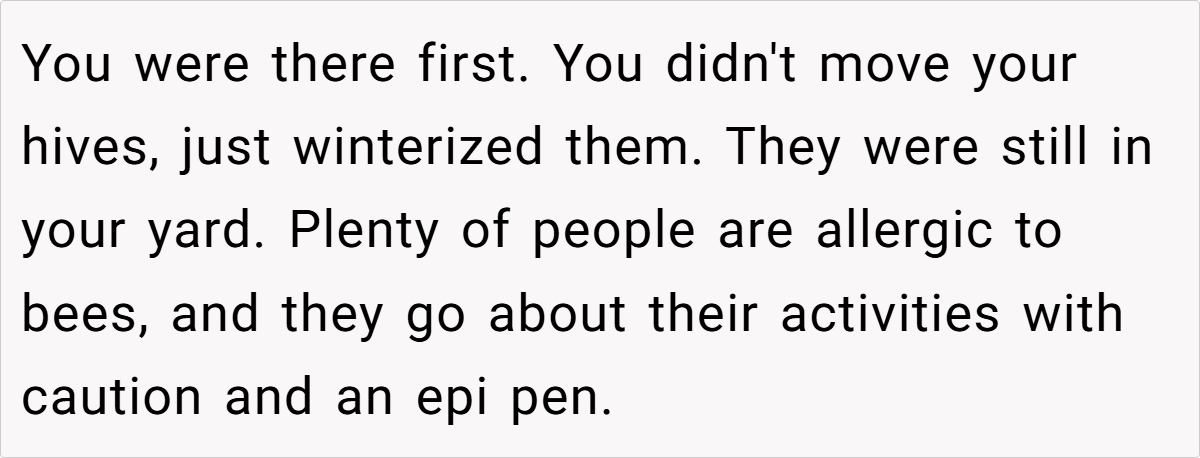
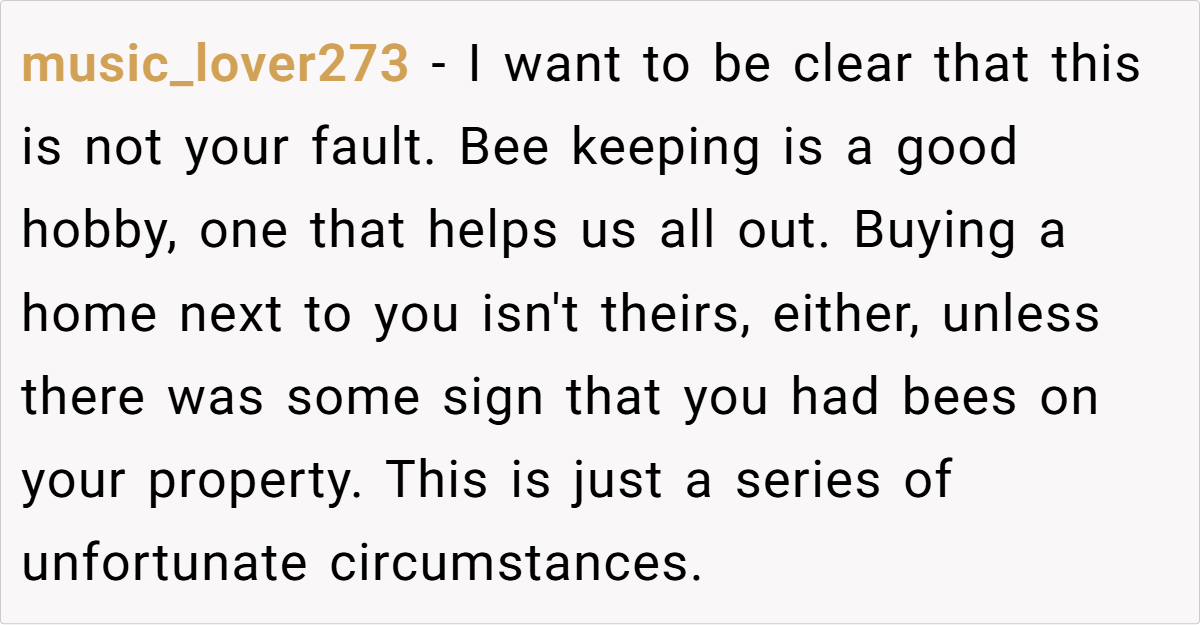

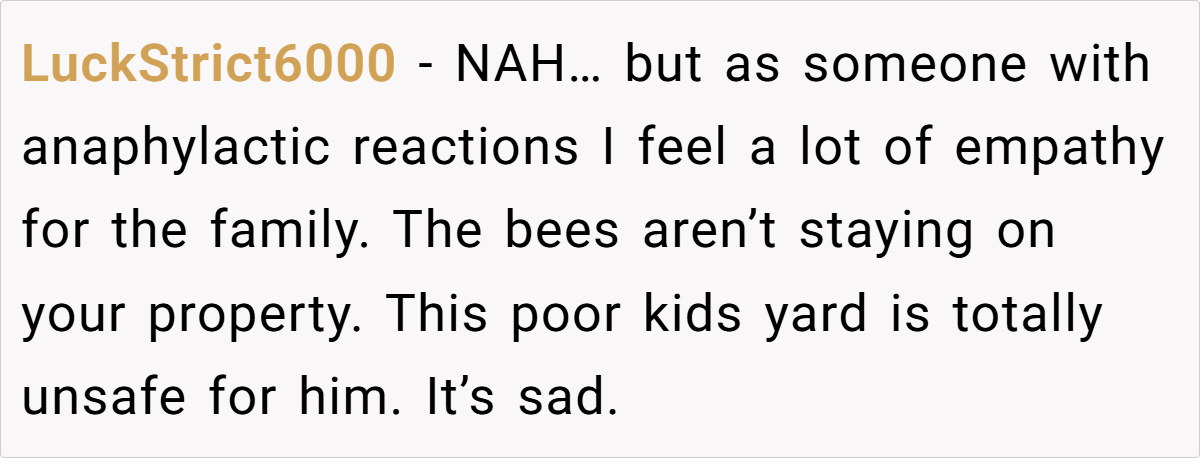
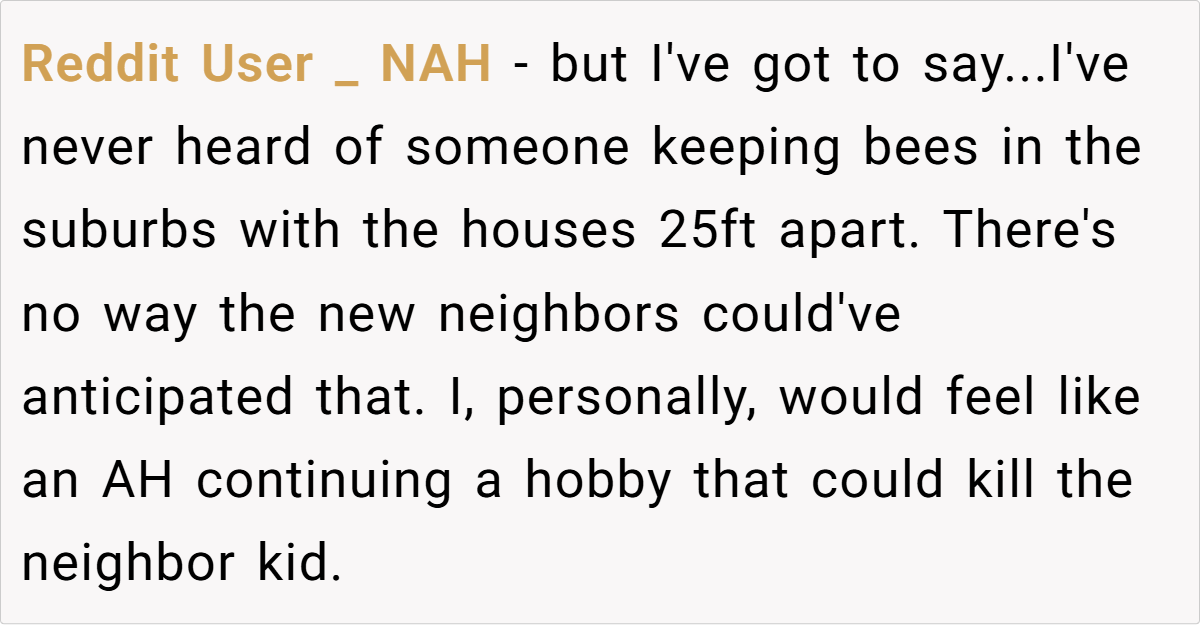
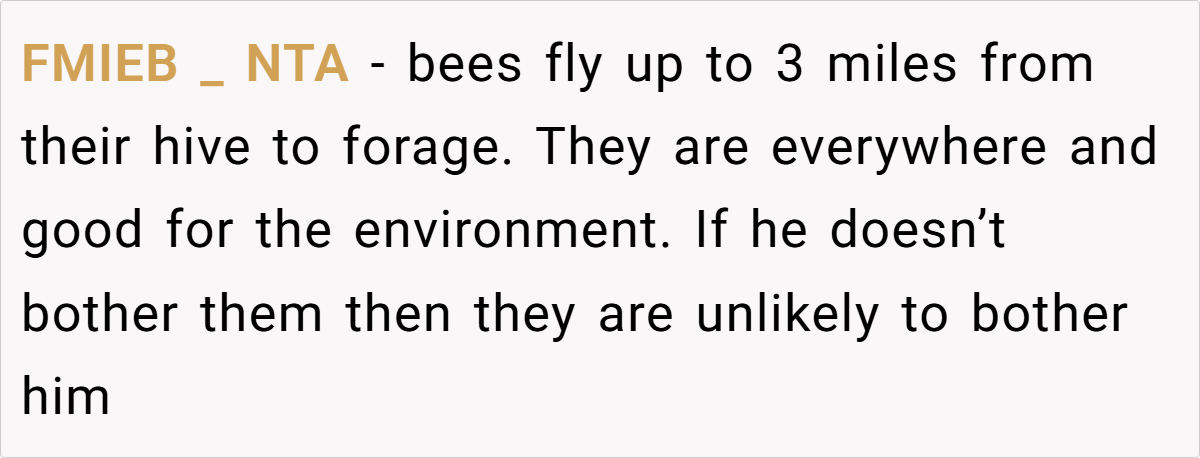
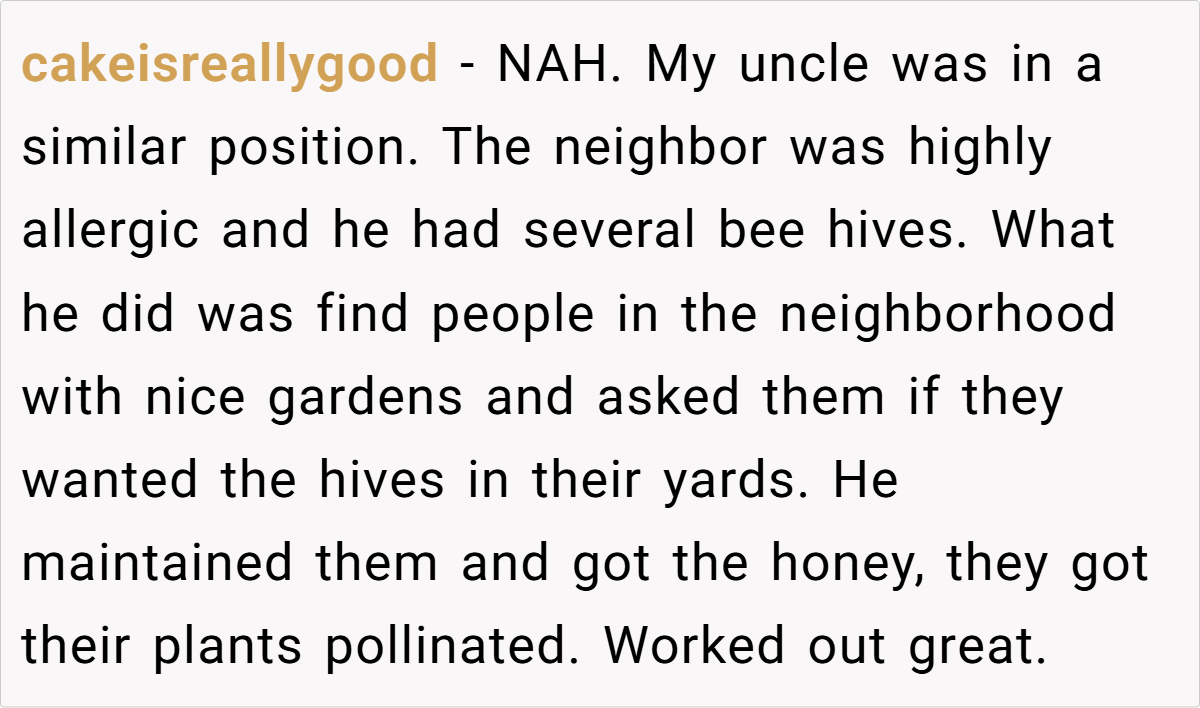
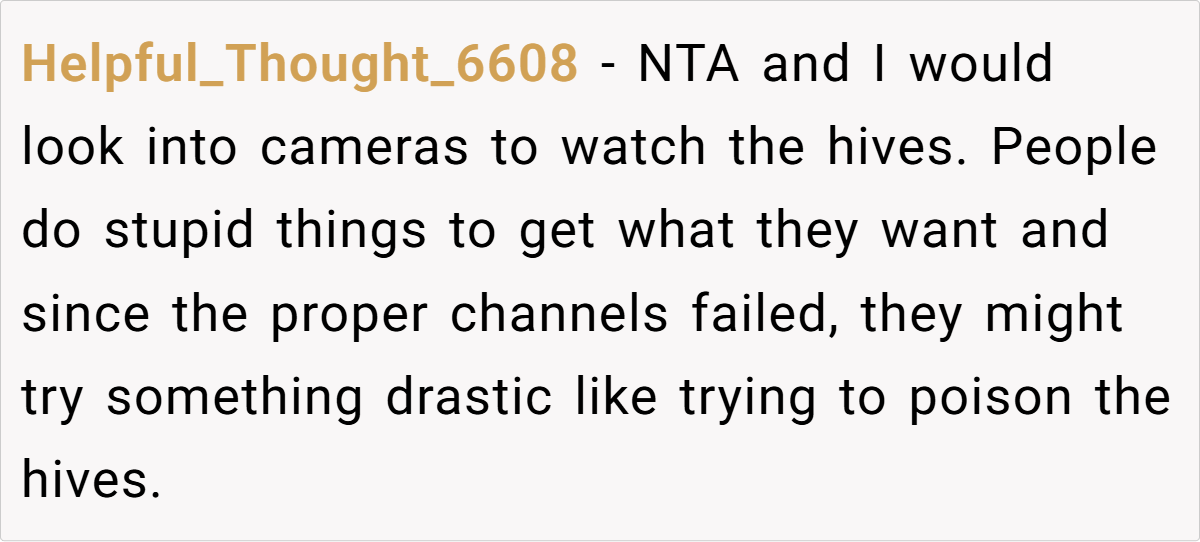

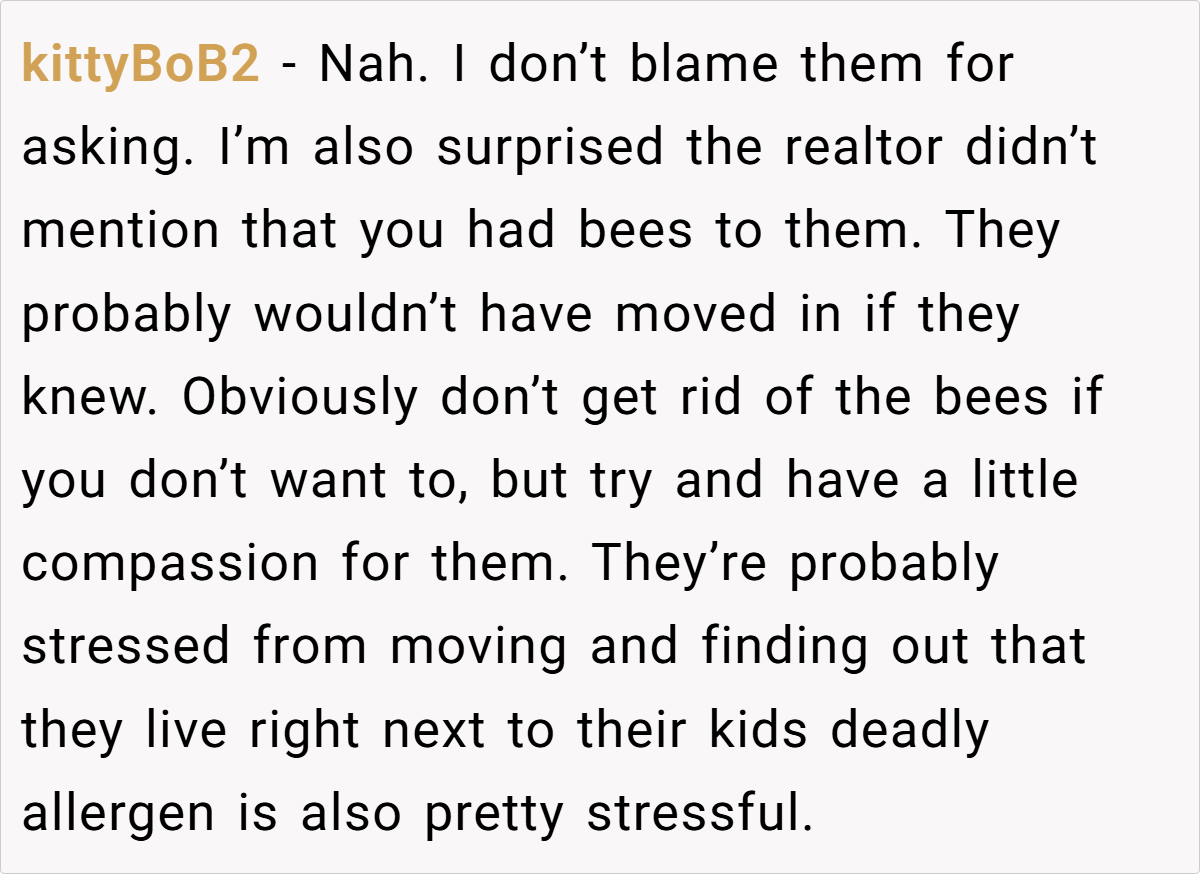
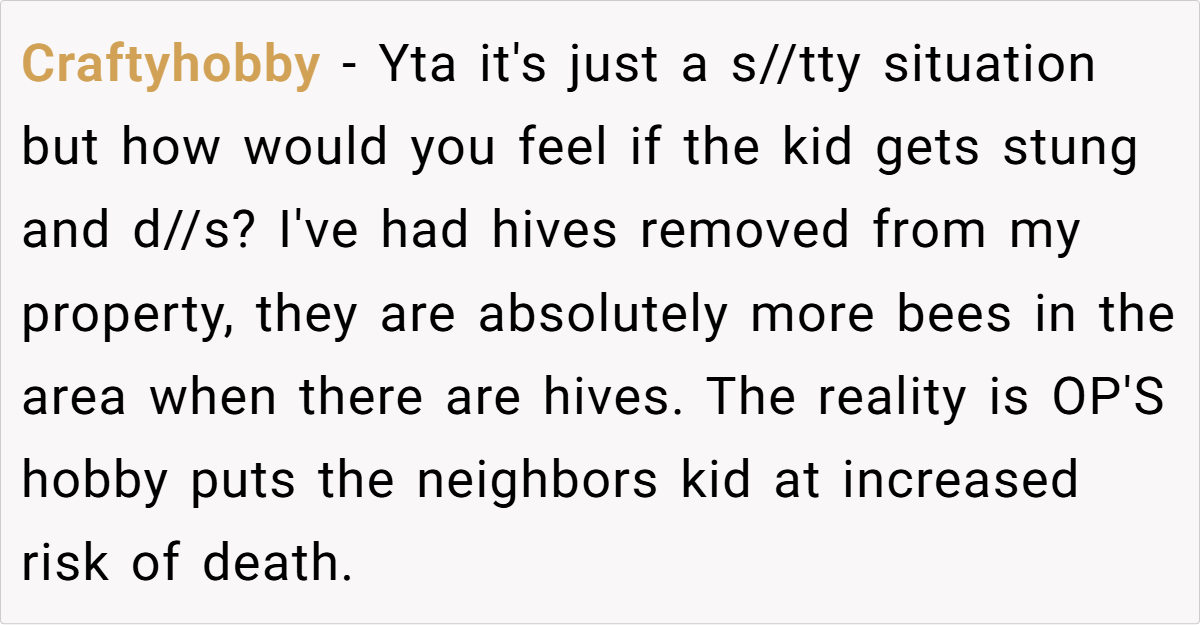
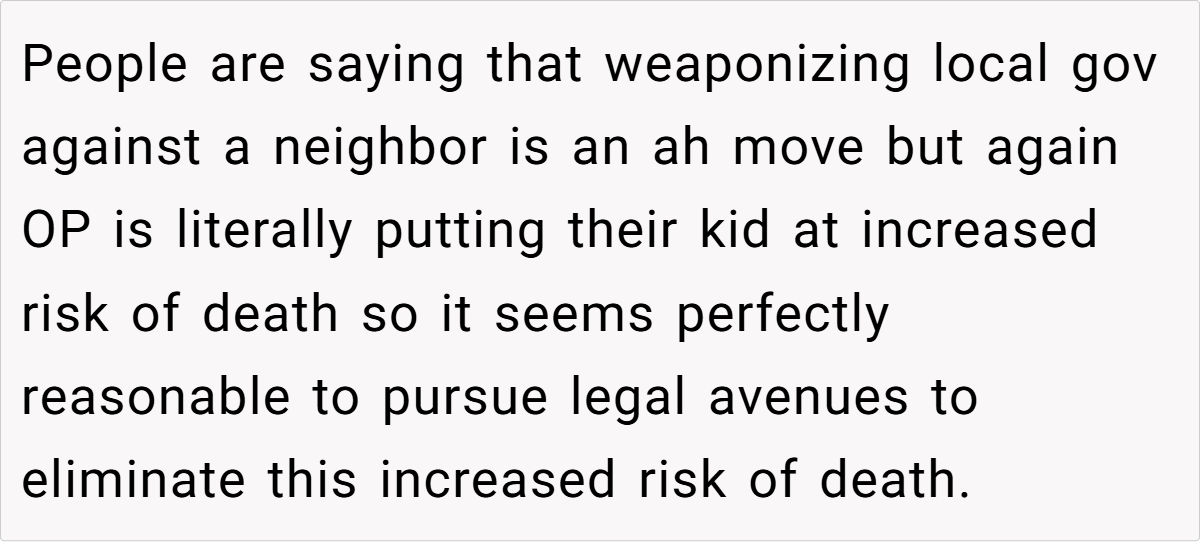
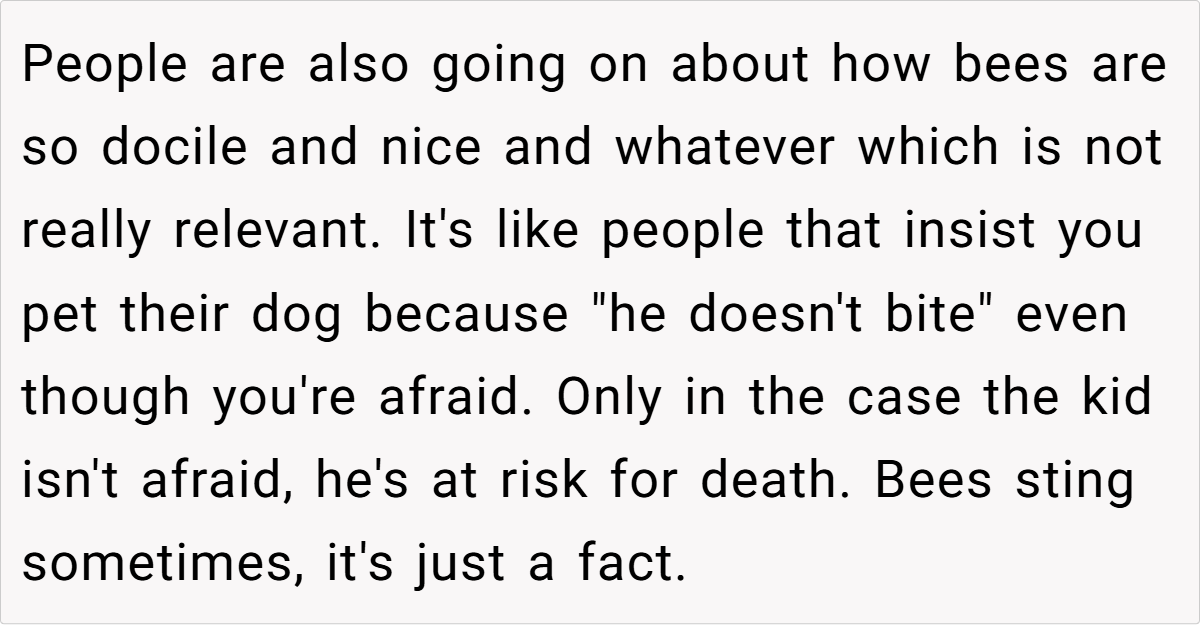
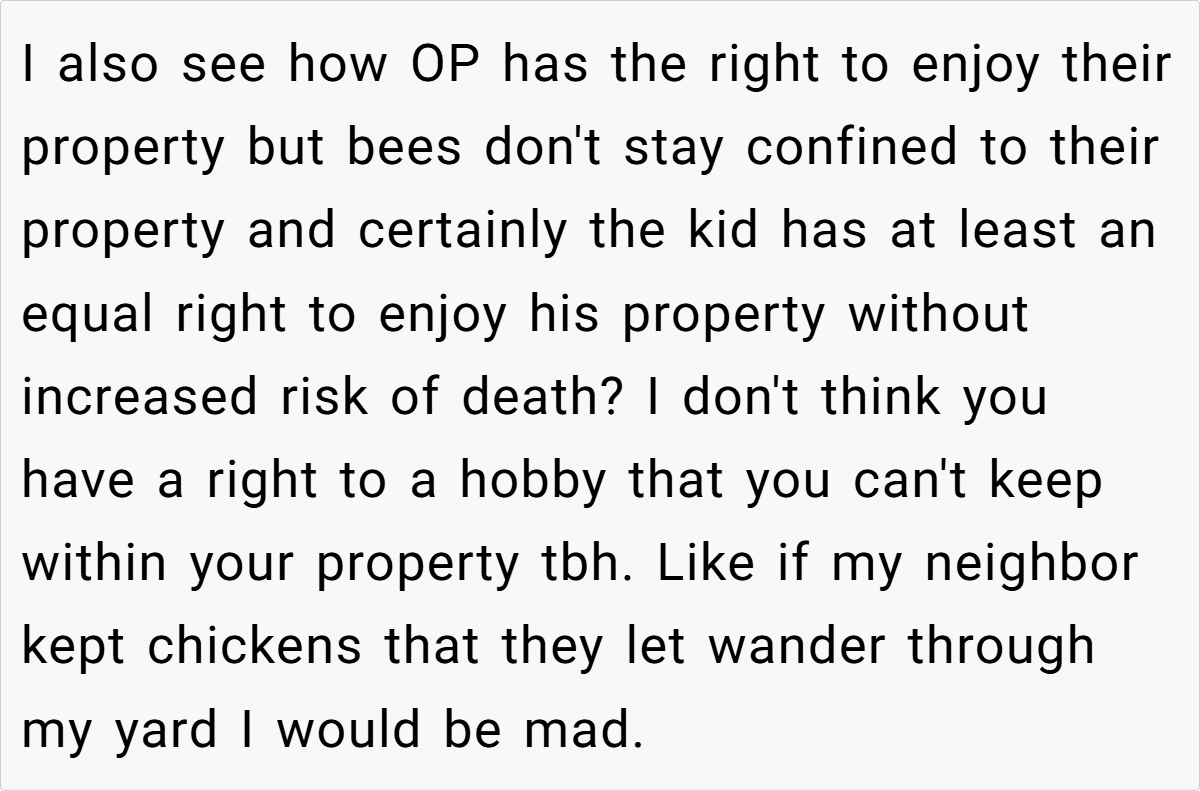
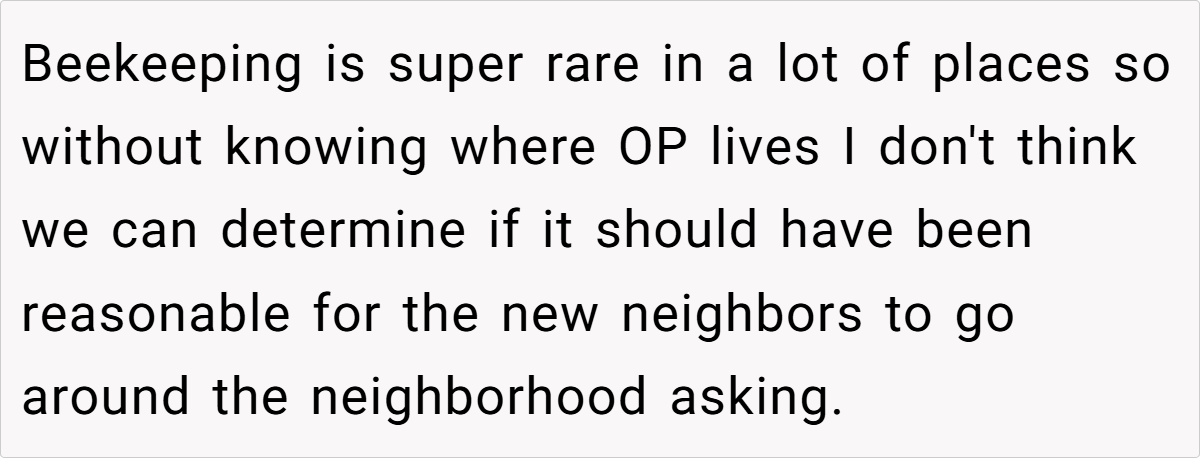
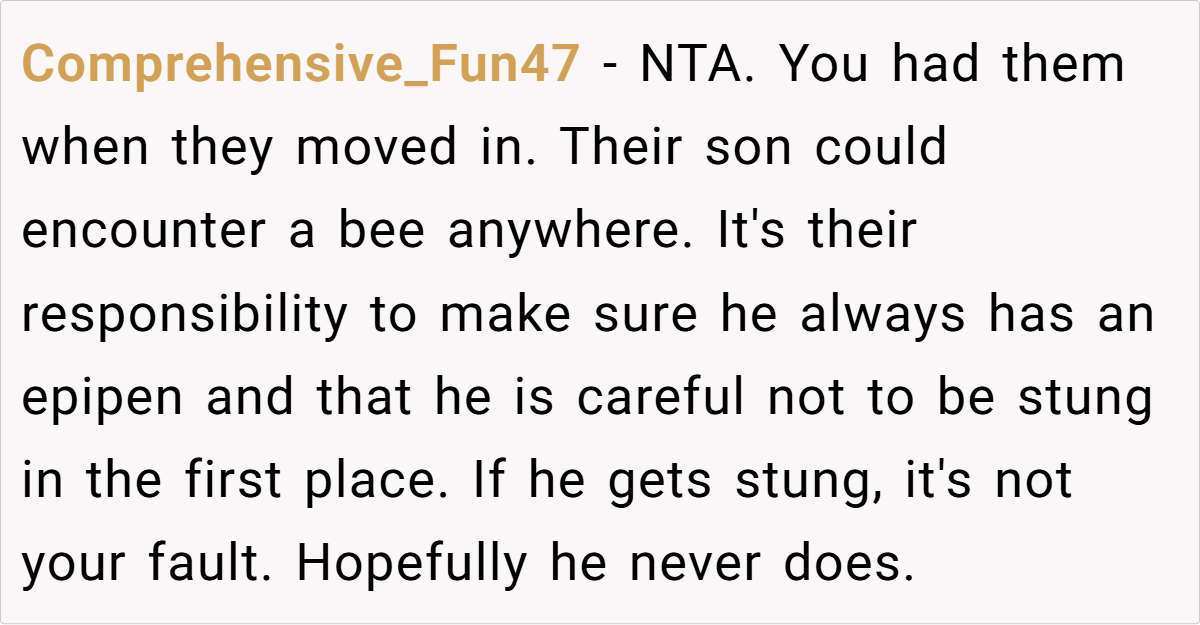
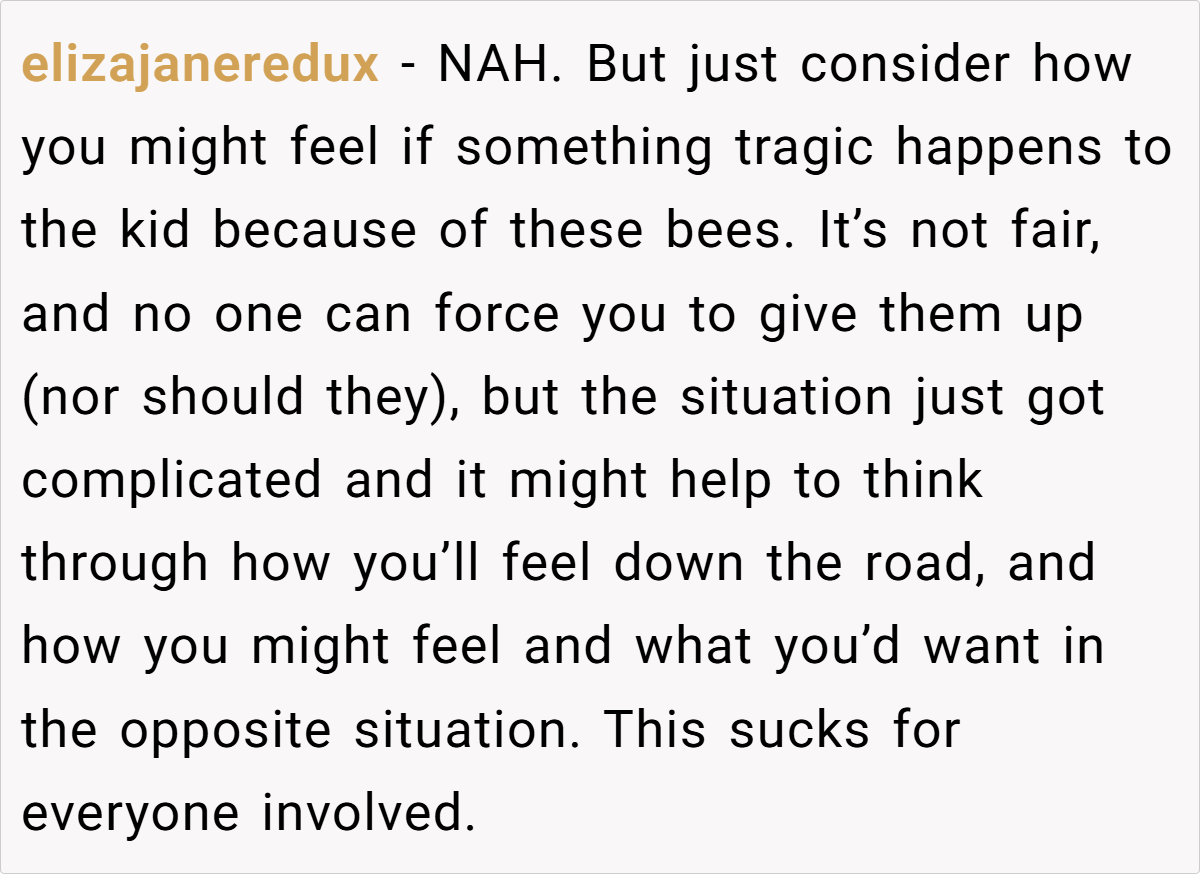
This situation highlights the complex balance between personal freedoms and public safety. OP has every legal right to maintain his hives, but he must also consider the ethical implications of keeping them near a child with a severe allergy. While the new neighbors’ attempt to push anti-beekeeping laws was extreme, their concerns are understandable.
What would you do in this situation? Should OP prioritize his long-standing hobby, or should he make accommodations for his neighbor’s safety? Share your thoughts below!

